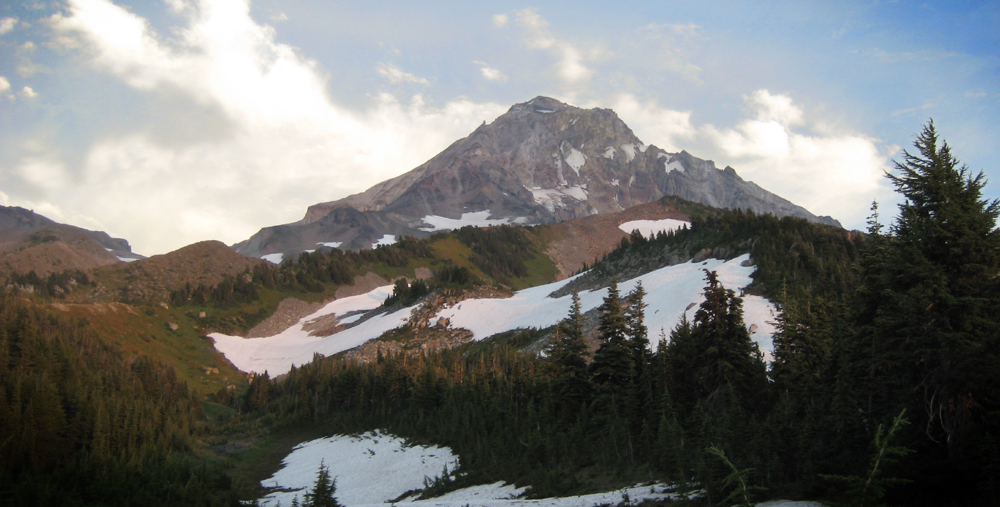|
previous topic :: next topic |
| Author |
Message |
robkov

Since 03 Jul 2006
90 Posts
97031
|
 Mon Aug 18, 08 8:04 pm Lightning Mon Aug 18, 08 8:04 pm Lightning |
 |
|
| Just wondering why someone would kite when they can see lightning strikes and hear thunder...
|
|
|
KidCorporate

Since 10 Jul 2007
563 Posts
Addicted
|
 Mon Aug 18, 08 8:06 pm Mon Aug 18, 08 8:06 pm |
 |
|
Maybe they get a charge out of it. 
_________________
Let's go kite. |
|
|
Joshiebaby

Since 14 Oct 2007
569 Posts
Vancouver, WA
Addicted
|
 Mon Aug 18, 08 8:39 pm Re: Lightning Mon Aug 18, 08 8:39 pm Re: Lightning |
 |
|
| a.
|
|
|
Kataku2k3

Since 14 Aug 2005
3754 Posts
PDX-LA
Videographer
|
 Mon Aug 18, 08 9:07 pm Mon Aug 18, 08 9:07 pm |
 |
|
| I keep a ground tied to my kites, so it's okay... Didn't stop any of us yesterday at Stevenson!
|
|
|
FlyDunes

Since 09 Oct 2007
1034 Posts
Aloha
XTreme Poster
|
 Mon Aug 18, 08 9:12 pm Re: Lightning Mon Aug 18, 08 9:12 pm Re: Lightning |
 |
|
| robkov wrote: | | Just wondering why someone would kite when they can see lightning strikes and hear thunder... |
It was way off in the distance and the clouds near us weren't cummies. You can hear thunder quite a long way from lightning strikes.
_________________
Lets FLY |
|
|
registered

Since 12 Jul 2005
1319 Posts
tsunami
Sandbagger
|
 Tue Aug 19, 08 5:28 am Tue Aug 19, 08 5:28 am |
 |
|
If you can hear the thunder you are close enough to get stung by the lightning from the cell..... common rule of thumb. 
|
|
|
bulae99
Since 12 Jul 2006
1692 Posts
XTreme Poster
|
 Tue Aug 19, 08 5:35 am If Struck the biggest piece of metal is your Tue Aug 19, 08 5:35 am If Struck the biggest piece of metal is your |
 |
|
spreder bar. Ouch
_________________
Hey, I'm being hahahahahrassed! |
|
|
FlyDunes

Since 09 Oct 2007
1034 Posts
Aloha
XTreme Poster
|
 Tue Aug 19, 08 6:31 am Tue Aug 19, 08 6:31 am |
 |
|
| registered wrote: | If you can hear the thunder you are close enough to get stung by the lightning from the cell..... common rule of thumb.  |
Hmmm, maybe, but that doesn't sound right to me. I grew up in Florida and we had lightning storms damn near every afternoon. I can't remember the formula anymore, but we used to count off from the time you see the lightning flash until you hear the thunder and then there's some number you divide the count by to determine your distance away in miles from the strike. I remember some of the lightning strikes being a *long* way away.
I found this on the net. Its on the NOAA page, but it seems ridiculous. You pretty much couldn't go outside in Florida in the afternoon if you followed these rules. That said, kiting has got to be a huge risk enhancer, so I guess I should follow them...
Flash-to-bang:
* When you see the FLASH
* Count the seconds to the BANG
* Every 5 seconds equals 1 mile. Divide by 5 to give the distance in miles from you to the lightning.
* 30 seconds - suspend all outdoor activities (lightning strike was 6 miles away or less) and seek safe shelter
* If you count 15 seconds or less, a lightning strike could occur where you are (3 miles away or less).
_________________
Lets FLY |
|
|
blowhard
Since 26 Dec 2005
2027 Posts
Windward
|
 Tue Aug 19, 08 11:23 am Tue Aug 19, 08 11:23 am |
 |
|
thermal convection in Fl. is slow moving horizontlly
whearas most of country has frontal convection
which moves rather quickly comparativly
sound travels at 650 ' per second
so about 10 seconds and it's a mile from you
|
|
|
FlyDunes

Since 09 Oct 2007
1034 Posts
Aloha
XTreme Poster
|
 Tue Aug 19, 08 11:45 am Tue Aug 19, 08 11:45 am |
 |
|
| blowhard wrote: | thermal convection in Fl. is slow moving horizontlly
whearas most of country has frontal convection
which moves rather quickly comparativly
sound travels at 650 ' per second
so about 10 seconds and it's a mile from you |
Not according to Wiki. The posting there says "1129 ft/s, or approximately 5 seconds per mile"
http://en.wikipedia.org/wiki/Speed_of_sound
_________________
Lets FLY |
|
|
robkov

Since 03 Jul 2006
90 Posts
97031
|
 Tue Aug 19, 08 3:23 pm regardless Tue Aug 19, 08 3:23 pm regardless |
 |
|
| Regardless, seems like a silly way to die.
|
|
|
Mark

Since 20 Jun 2005
3678 Posts
I need my fix because I'm a
Naishaholic
|
 Tue Aug 19, 08 3:44 pm Tue Aug 19, 08 3:44 pm |
 |
|
Guess kiting has its own risks. Does seem extra foolish to tempt fate by kiting with lightning around. I am not interested in having lightning strike the kite, come down the lines to a metal hook near the boys and blast me!
Heres what I found:
--------------------------------------------------------------------------------
Lightning is a form of electrical discharge between clouds or between a cloud and the ground.
The discharge may take place between two parts of the same cloud, between two clouds, or between a cloud and the ground. Lightning may appear as a jagged streak, a flash in the sky, or in the rarer form of a brilliant ball. Thunder is the sound waves produced by the explosive heating of the air in the lightning channel during the return.
Lightning Specifics
Most lightning strikes occur either at the beginning or end of a storm.
The average lightning strike is six miles long.
Lightning reaches 50,000 degrees Fahrenheit, fours times as hot as the sun's surface.
A cloud-to-ground lightning channel can be 2 to 10 miles long.
Voltage in a cloud-to-ground strike is 100 million to 1 billion volts.
--------------------------------------------------------------------------------
Lightning is the most dangerous and frequently encountered weather hazard people experience each year.
Lightning affects all regions. Florida, Michigan, Pennsylvania, North Carolina, New York, Ohio, Texas, Tennessee, Georgia, and Colorado have the most lightning deaths and injuries.
Lightning is the number-one cause of storm-related deaths.
Damage costs from lightning are estimated at $4-5 billion each year in the U.S.
Around the earth there are 100 lightning strikes per second, or 8,640,00 times a day.
What is commonly referred to as heat lightning, is actually lightning too far away to be heard. However, the storm may be moving in your direction.
There are approximately 100,000 thunderstorms in the U.S. each year.
Striking Statistics
Americans are twice as likely to die from lightning than from a hurricane, tornado or flood.
The Federal Emergency Management Agency (FEMA) estimates there are 200 deaths and 750 severe injuries from lightning each year in the U.S.
20% of all lightning victims die from the strike.
70% of survivors will suffer serious long-term effects.
Annually, there are more than 10,000 forest fires caused by lightning.
--------------------------------------------------------------------------------
85% of lightning victims are children and young men aged 10-35 engaged in outdoor recreation and work activities outside.
70% of all lightning injuries and fatalities occur in the afternoon.
Most lightning deaths involve people working outdoors and outdoor recreationists
Lightning in remote terrain creates dangerous conditions. Hikers, campers, backpackers, skiers, fishermen, and hunters are especially vulnerable when they're participating in these activities.
Many survivors of lightning strikes report that immediately before being struck their hair was standing on end and they had a metallic taste in their mouth.
Long-term injuries from a lightning strike can include memory & attention loss, chronic numbness, muscle spasms & stiffness, depression, hearing loss, and sleep disturbance.
_________________
Cleverly disguised as an adult...
www.naishkites.com |
|
|
kyle.vh
Since 11 Jul 2007
713 Posts
city of angels
Addicted
|
|
|
Mark

Since 20 Jun 2005
3678 Posts
I need my fix because I'm a
Naishaholic
|
 Tue Aug 19, 08 5:15 pm Tue Aug 19, 08 5:15 pm |
 |
|

I wonder if you can go to that exact spot and find where the sand has fused to glass.
_________________
Cleverly disguised as an adult...
www.naishkites.com |
|
|
Kraemer

Since 24 Apr 2006
1736 Posts
Sky Pilot
Unicorn Captain
|
 Tue Aug 19, 08 5:28 pm Tue Aug 19, 08 5:28 pm |
 |
|
| Mark wrote: | | Lightning in remote terrain creates dangerous conditions. Hikers, campers, backpackers, skiers, fishermen, and hunters are especially vulnerable when they're participating in these activities. |
Tried to get hit on the mountain over the weekend--- not so lucky. I did everything right.
Backpacking/ hiking up to McNeil pt. I guess I needed a fishing rod sticking out of my pack-- and a D300 set up with an open shutter to catch it.
Lightning strikes are common on the east coast during the summer--scary as shit when you're from the west coast and you're visiting when a fucking bolt from hell scares the living shit out of you. It is awesome.
 |
| |
Mtn.jpg |
|
|
|
HoodRat

Since 30 Mar 2008
199 Posts
Stoked
|
 Tue Aug 19, 08 5:28 pm Tue Aug 19, 08 5:28 pm |
 |
|
 bzzzzzzzzzzzzt! bzzzzzzzzzzzzt!
_________________
 |
|
|
registered

Since 12 Jul 2005
1319 Posts
tsunami
Sandbagger
|
 Tue Aug 19, 08 6:11 pm Tue Aug 19, 08 6:11 pm |
 |
|
my rule of thumb from above was for safety,
If you want to be ignorant then you could kite /glide/ golf your with the sound/time/distance triangulation and don't let the hair on the neck and wierd smells ect scare you... you got it all figured out.
killin' it
You could also safely kite in squals...... you have a safety and a bow kite right....  
I have had to drop our packs in the bugaboos to reconsider the pounds of gear on our backs during the daily afternoon thunder/lightning events.
Best to avoid these type of things
but someone has to step it up for the darwin awards contest for the entertainment... I mean the news.
when building bridges .... with all the steel and cranes ..... they say thunder we used to go home.
|
|
|
|




 bzzzzzzzzzzzzt!
bzzzzzzzzzzzzt!